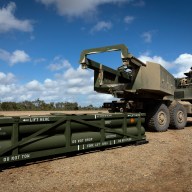They say nothing beats on-the-job training, but when that training is a train derailment, chemical spill or a factory fire, the real thing might come too late for learning.
That’s why the Canadian Standards Association is increasingly turning to video games to simulate dangerous workplace conditions so professionals are ready when disaster strikes.
Lance Novak of CSA says Ready Response is one of its most popular titles. The game challenges trainees to avoid a dangerous explosion at a gas station, a toxic train derailment or a factory chemical spill.
“It takes the perspective of somebody within an organization that has accountability for creating emergency response plans. It puts them in a real-life scenario where they create a plan and watch what happens when an emergency occurs,” he explains. Players can respond to the developing situation, calibrating actions to deal with “reality.”
“If you get to a point where you’re beyond recovery, you lose the game,” he says. Better the game then a life: CSA reports that 1,055 Canadians die on the job every year, deaths that could be reduced by better safety training.
Less sexy but just as essential is Engaging WHMIS, which teaches workers about handling hazardous materials. “It walks through that standard curriculum in a much more interactive, visually appealing and engaging way,” says Novak.
The high-end games, created by Ottawa-based Distil Interactive, offer a realistic world, Novak says. No surprise: One of the programmers used to work on the Grand Theft Auto franchise.
“Sometimes you have to look twice to confirm whether or not they’re photographs or visuals.”
It’s not all high-stakes action: Some of the games work on “soft skills” like business management and interviewing. “You actually interface and carry on a dialogue with a person whose facial expressions change to reflect the mood that you’re putting them in,” Novak says.
CSA released four games in 2009 and plans more for 2010. A climate-change game, for
example, would assess competency for people measuring carbon levels.
CSA, whose mandate is to provide standards and instill them in the workplace, says e-learning is gaining traction at schools but the workplace is falling behind.
“The top two advantages are cost savings — this is a lot cheaper than sending somebody off to a classroom,” Novak says. “And the retention and effectiveness of the learning is higher when
you’re actually immersed in it, as opposed to a one-way exchange of information.”
















